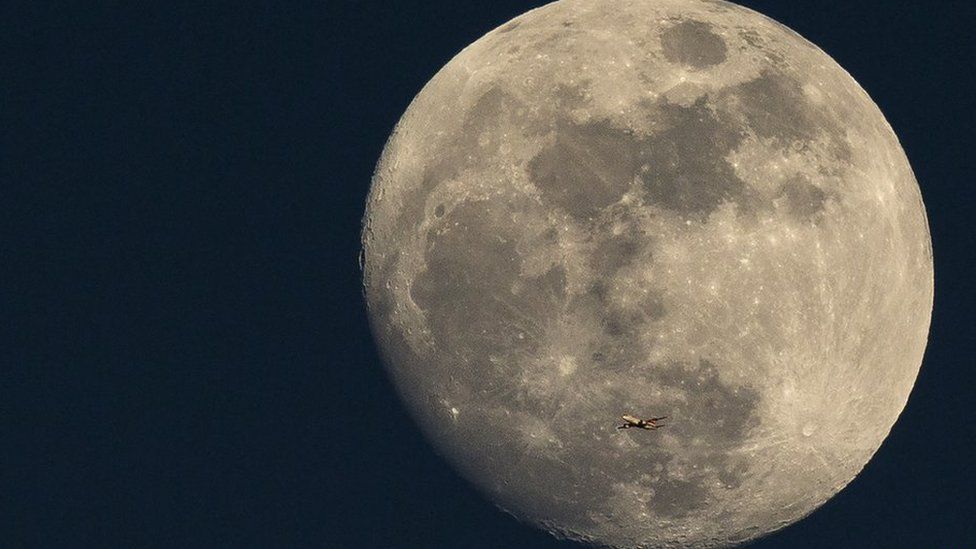Are we ready to go to the Moon (and back) on holiday?
- Published

A US space company says two people have paid for a trip around the Moon.
SpaceX's mission, which is planned for 2018, is thought to cost passengers around £100m each.
It could pave the way for regular trips, but how far away are we from two weeks in space instead of a trip to a caravan park?
According to UK Space Agency's Libby Jackson, space tourism "will become more affordable within the lifetime of younger generations".
Libby, whose official title is Human Spaceflight and Microgravity Programme Manager, said: "Space tourism is here to stay.
"Virgin Galactic have been in development since 2004.
"The future is there and Space X's announcement is just part of the story."
A year of training
Libby says there's still a lot of preparation to do.
"Space tourists will probably have to train for a year or so to make sure they're in good physical condition," she explains.
"They'll need to know how to look after their spacecraft and how to fix it in an emergency.
"You can't just come back to Earth if something goes wrong, you could be a couple of days away."
She thinks SpaceX's announcement is "very interesting".
"They [SpaceX] haven't said yet but I would imagine they [the space tourists] might be flying with a professional astronaut - one who is trained in the complete operation.
"This trip, if it happens, would not be without risk.
"Everybody always works as hard as possible to minimise the risk. We always want to bring people back safely to Earth.
"But every time you sit on a big rocket which needs a controlled explosion to get you into space, there are risks."
'A big if'
Libby suggested SpaceX's plan to complete the mission in 2018 "could be a bit ambitious".
"So far they [SpaceX] have never really been a player in the space tourism market.
"There have been others like Virgin Galactic, Blue Origin and various others looking to get people to sub-orbital space.
"This could change things if, and it's a big if, they achieve it by next year.
"There are still a lot of challenges to overcome but I'm sure they've got the plans in place."
Find us on Instagram at BBCNewsbeat and follow us on Snapchat, search for bbc_newsbeat